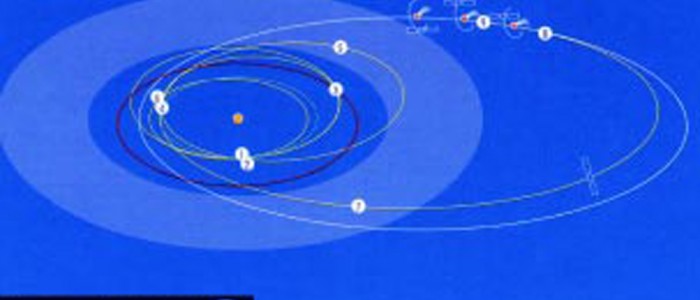Even years before the first satellite was launched, the community involved in space research and exploration had had their almost annual congress exchanging ideas, meeting colleagues, attract new contacts and get professional updates, or as the slogan for the organisation suggests; “Connecting space people”.
Founded in 1951, the International Astronautical Federation is the world’s leading space advocacy organisation and the main contact point is the annual conference.
Dedicated to “A spacefaring world cooperating for the benefit of humanity”, the Federation advances and promotes space cooperation, knowledge and achievements.
Supported by over 40 committees gathering more than 500 world space experts, the IAF coordinates the International Astronautical Congress and the IAF Global Networking Forum (GNF), has dedicated regional activities and activities for students and young professionals, and recognises and awards space achievements.
Mowing around the world, the 65th congress, or IAC 2014, will be arranged in Toronto Canada 29 September to 3 October, on behalf of The Canadian Aeronautics and Space Institute (CASI). This year’s conference revolves around the topical issue of “Our world Needs Space”. That is a topic of current interest as the world becomes increasingly more dependent on the services space provides, best illustrated by all the different types of satellites circling our planet, thus providing the society both knowledge and service.
The topic “Our World Needs Space” promotes further exploration of the relationship between Earth and space and the ways that space activities help to meet our needs on Earth.
The Canadian Aeronautics and Space Institute (CASI) is proud to host IAC 2014. CASI has had the privilege of hosting two previous IACs, both to great acclaim: IAC 1991 in Montreal, and more recently IAC 2004 in Vancouver.
What is the International Astronautical Federation, (IAF)?
The founding members of the IAF signed its Constitution on 4 September 1951 during the first ever IAC in London. Signed by ten national organisations, the Svenska Interplanetariska Sällskapet (Swedish Interplanetary Society)was one of them. Today, the International Astronautical Federation has over 270 members, including all key space agencies, companies, societies, associations and institutes across 64 countries. Dedicated to “A spacefaring world cooperating for the benefit of humanity”, the Federation advances and promotes space cooperation, knowledge and achievements.
Themes for all
Like most such congresses, the programmes are divided into a series of topics and among these, one finds topics that is actually in this type of congresses. Space Science has always been the main pillar for the organisation, and has the natural place in the programme together with the topic, Space Exploration. Other important topics are Earth Observation together with Space Communication and Navigation, all of which are important because these fields are the most commercial within the space segment and concern most people in the world. Space Debris is an increasing threat for all objects in space and is a topic of current interest, as well as Space and Society. The last is important to show how services based on space over the past few decades have been one of the main pillars in a well- functioned society.
If one studies the list of main authors of papers, China is the dominating country, but there are papers introduced from the most northerly points of the continents to the Falkland Island in the south, to the world around. The Nordic countries are also represented through several papers, possibly not to the same extent one had hoped for, but according to the level of space activities carried out in these countries.
NordicSpace will attend the conference and provide our readers with a short report as well as pictures from the event.
Featured picture: The Rosetta track. Credit: ESA


